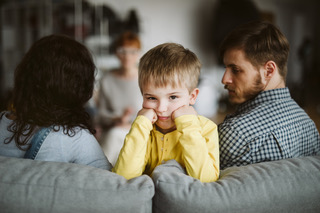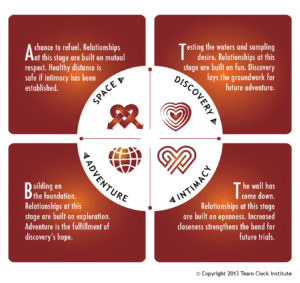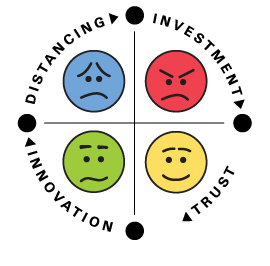
What’s in Your Blind Spot?
You’re stuck. You found yourself locked into a stressful situation. Your kid is struggling and you don’t know why. You’re angry and frustrated. Or maybe sad and wanting escape. There’s a good chance you’re experiencing all of those things.
It’s hardest to see the path to resolution when stressed. We usually default to old habits and only see the obvious factors of the situation. Our kids didn’t come with manuals and even the best parents rely on trial-and-error. No one wants to screw up their kid.
Parenting is hard, and it’s so much harder when it feels like the sky is falling. But before you start yelling or hide in your closet with a week’s worth of chocolate, first hit the pause button. Then gently shift your position to see what’s hiding in your blind spot.
Broader environmental influences are masters at disguise. They’re good at becoming part of the scenery even while they’re playing havoc with your child. Try these examples on for size:
- Your child’s routine is shifting under their feet. The rules that worked yesterday no longer apply.
- Your family has other stressors, and your child is feeling the weight without understanding why. Kids have no way of knowing they are not the owner of a larger family problem.
- Your child’s internal environment is changing (illness, fatigue, developmental stops & starts) and he/she is busy playing catch up. There are so many variables in this human equation!
- Your child is butting up against a misfit between task demands and their current abilities. Sometimes we have to regress in order to build the skills demanded by new challenges.
Acknowledging sneaky environmental influences on your child’s behavior can go a long way in getting yourself unstuck. You can’t fight an enemy you can’t see, so recognition really is half the battle. Once you have a better idea of what you’re working with, you can then begin to tackle the problem piece by piece. And… ‘poof,’…you’re no longer stuck!

About the Author
Kerry Galarza, MS OTR/L is the Clinical Director and an occupational therapist at Elmhurst Counseling. She provides specialized assessment and intervention with children of all ages and their families. Kerry engages clients with naturally occurring, meaningful home-based methods to empower autonomy and maximize functioning.






